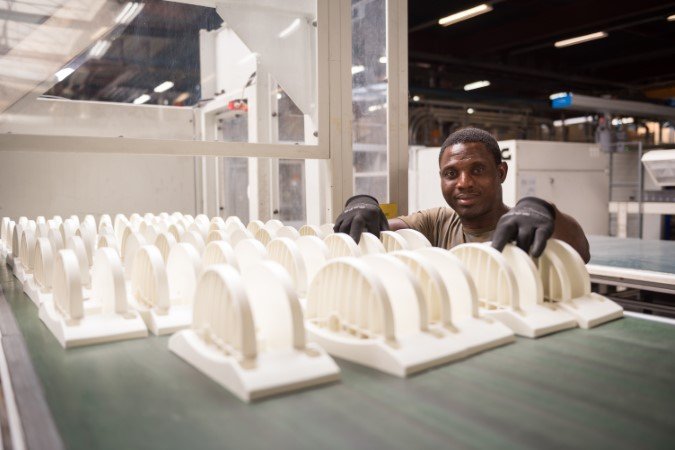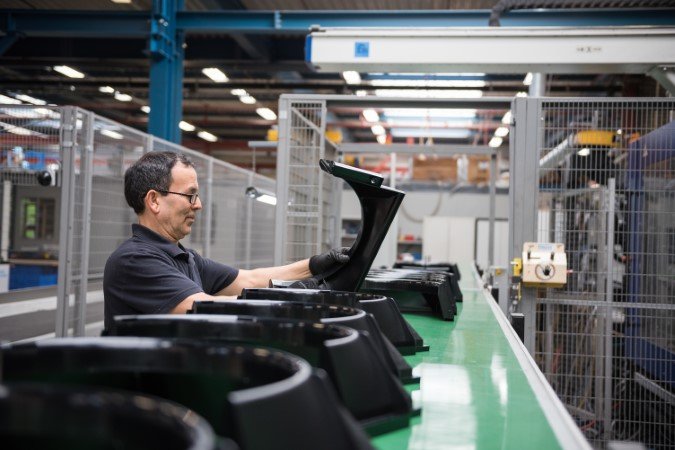What are injection moulded products?
In this article we will consider:
- What are injection moulding products?
- How are injection moulding products manufactured?
- What are the main applications of injection moulding products?
Injection moulded products are any products manufactured by injecting molten material into a rigid mould. The most common material used in injection moulding is plastic, given this material's versatility, durability, and cost-effectiveness.
Injection moulded products are ubiquitous in the modern world with some examples including vehicle dashboards, milk bottles, and carrier bags.
From healthcare to agriculture to household consumer goods, industries and sectors rely on injection moulding products to provide many everyday goods and services.
An overview of the manufacturing process for injection moulded products
Injection moulding is the most common method used for manufacturing plastic products, parts, and components.
The manufacturing process for injection moulded products involves forcing molten plastic (often referred to as resin) into a mould at high pressures and then leaving it to cool and harden. The mould is then disassembled, leaving behind a solid plastic component or part. Depending on the desired product's complexity, the mould itself may comprise many pieces.
This process is repeatable once the solid plastic is removed from the mould, so injection moulding allows for large-scale production. It can, however, also be used to manufacture one-off prototypes or products.
Regardless, after the injection moulding process is complete, the part then undergoes quality testing before it is ready to be coated. Depending on the final product, this stage is crucial to create a clean finish, add a chemically resistant layer, or ensure that it has electromagnetic protection.
Main applications of injection moulded products
Packaging
Food and beverage manufacturers use injection moulded products for packaging and containers, as they are light, hygienic, sealable, and can have insulating properties.
Other consumer goods, such as electronic devices, can be safely transported in rigid plastic packaging made with injection moulding.
Medical and healthcare
Single-use injection moulded plastic products, such as syringes, as well as multi-use surgical equipment are vital to the healthcare sector since they are easy to clean and resistant to bacteria and germs.
Textiles
Injection moulded products are surprisingly common in the textiles industry to make, for instance, shoes, sunglasses, watch straps and rain jackets.
The use of plastic provides strong colour resistance and waterproofing, as well as protection against the sun's UV rays and mould from bacteria.
Electronics
Thanks to their insulating properties and design flexibility, the electronics industry uses injection moulded products for a variety of purposes, from casings for batteries to circuit boards and charging devices.
Aviation, transport and logistics
Much of the interior and exterior of automotive vehicles and aircraft are comprised of injection moulded products since they are strong and lightweight.
Construction
Injection moulded products are in widespread use throughout the construction industry, from interior fittings and cablings to insulation and guttering, as well as protective gear for workers.
Advantages and disadvantages of injection moulded products
Injection moulding with plastics allows manufacturers to make a huge array of parts and products for various purposes at scale quickly and at a low cost.
Parts can be made according to precise specifications and with complete uniformity. The finished product can then come in a range of colours and designs with coating finishes for extra protection.
The main disadvantage is limited recyclability, but there has been progress towards more sustainable uses of injection moulding products in recent years. Another potential drawback to injection moulding is that it is a highly technical process with large start-up costs.
Injection moulded products and Pekago
As such, to ensure quality with injection moulded products, you need a trusted partner with expertise in the industry.
For 30 years, Pekago has excelled at manufacturing injection moulded products using state-of-the-art technology coupled with our technical know-how.
Get in touch with us for a quote to find out how we can help you realise, protect, and refine your products.




